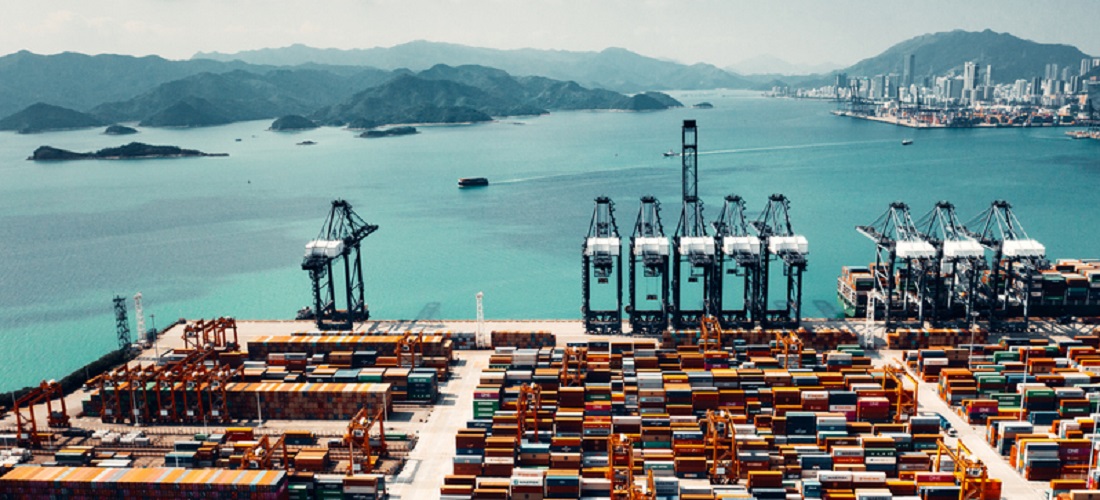
Freight increases once again in response to new covid-19 wave in China
Mar, 16, 2022 Posted by Gabriel MalheirosWeek 202211
Freight increases and longer lead times to import from China. These are the first impacts foreseen by Brazilian manufacturers of electronics, white goods, and machinery in the face of a new lockdown imposed by the Chinese government in Shenzhen this week.
“Cellphone manufactures in Brazil will have to endure freight increases,” said Samir Vani, general manager at MediaTek, a company that develops connectivity chips for 41.8% of the global market. The impact over freight prices will be immediate, assesses the executive. However, the decision to order a lockdown in Shenzhen, a global electronics producing hub, should not prevent the industry from recovering. “After disruptions at the beginning of the pandemic, from which the electronic components production chain is successfully recovering, this should be no more than a stumble along the way,” he says. As a result, the sector’s expectations remain to resume pre-pandemic levels by the end of the year.
The new Chinese-mandated lockdown is expected to put an end to a downward trend seen in the container rental prices for ocean freight. Last week, transporting a container from China to Brazil would cost around US$ 11,000. At the height of the pandemic, costs reached US$ 20,000. Before the virus spread through the world, prices were about $2,000.
“Ports and the entire global logistics chain should feel the blow in April and May as we are already very tight even though freight prices were starting to decline,” says Roberto Milani, vice president of Comexport. According to him, who is also the director of the Brazil-China Business Council, shipping companies have begun to signal that further increases are on the horizon.
In addition to freight increases, blockages can lead to other costs and supply pressures. The daily rates borne by large vessels, for example, may reach US$ 100 thousand. “Port congestion equals loss,” emphasizes Milani. To secure its competitive advantage, the company, which has 145 customers who import from China, felt the need to open an office in Shanghai during the pandemic to have a local team dedicated exclusively to operations in the country, thus facilitating transactions with Chinese suppliers.
“As soon as the lockdowns started to be announced, our team began looking for suppliers in other provinces and alternative ports,” says Milani regarding the current situation. From 2019 to 2021, business in China added up to BRL 6.1 billion in revenue for the company.
Although Shenzhen went into isolation only this week, Cetro Máquinas, a supplier of packing and automation machines, has noticed worse import flow conditions since November. “Everyone is facing some production problem, either because of input shortages (such as plastic materials) or because of insufficient labor,” says Leonardo Mello, CEO and founder of the Bauru-based company, which imports 90% of the machinery output of eight different Chinese manufacturers.
The delivery lead time for the machines purchased by Cetro doubled from 90 to 180 days in the last three months, prompting the company to seek a third port alternative in the city of Ningbo-Zhoushan to avoid the barriers imposed in the ports of Shenzen and Shanghai. Mello is also looking for alternative suppliers in Germany, India, and Mercosur countries.
According to Vanderlei Rigatieri, CEO of Brazilian technology business WDC Networks, which imports products and components from 40 different Chinese suppliers, an increase in freight prices is certain. “The war [in Ukraine] isn’t helping either, and it’s only going to get worse.”
Among WDC’s Chinese suppliers, Huawei, situated in Shenzhen, has gone into lockdown and announced a delay in supplying solar energy batteries and inverters.
Source: Valor Econômico
To read the full original article, please access:
-
Trade Regulations
Dec, 06, 2022
0
EU agrees deal to ban products which fuel deforestation
-
Other Logistics
Nov, 11, 2024
0
Brado records historic milestone of 10.7 thousand containers in the month
-
Trade Regulations
Jan, 11, 2024
0
Argentina Lifts Restriction on Import Permits in Major Policy Shift
-
Ports and Terminals
Jul, 02, 2024
0
New cruise terminal in Santos unfeasible, experts say


